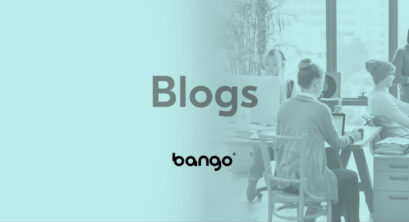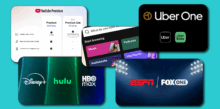Webinar Q&A: Beyond bandwidth – Opening new revenue through carrier billing
by Sukey Miller

Thanks to all who attended our webinar, “Beyond bandwidth – Opening new revenue through carrier billing“.
Featuring Bango and Telefónica Digital, hosted by Mobile Payments Today, the webinar explored how Mobile Network Operators who embrace carrier billing are not just connecting to a world of commercial opportunity, they’re enhancing the user experience, driving up conversion rates and providing a boost to the entire app economy.
If you missed it, you can download the recorded video anytime.
We had so many great questions that we were not able to get to them all. So here we’ve answered those we didn’t have chance to during the webinar session.
Q: I observe that you did not mention Africa in your revenue chat
A: We do not have good quality data from Africa at the moment. However, overall picture is that voice and text is still rising because subscriber numbers are growing and smart phones are just taking off.
Q: One question, does AT&T provide DCB (direct carrier billing) for Google play
A: Yes, carrier billing is available in Google Play on AT&T, and in fact all 4 big USA carrier networks. Like all app stores, where carrier billing is introduced, digital content sales increase in the store. This is true even in markets like North America, where credit card usage is very high.
Q: What about the Payment regulation in your region or country? Currently it is still a grey zone, but since we are collecting money on behalf of, how do you think that the payment regulators will deal with operators becoming “payment providers”?
A: Operators have billed for 3rd party services for many years. Premium rate phone lines, and more recently text messaging services are predominantly 3rd party providers, with the carrier providing billing and delivery.
The difference with digital content is that the carrier may not provide delivery, only the billing service.
The latest regulatory update comes out of Europe, where the European Commission, which sets standards in over a dozen major European markets, has redrafted payment regulation definitions. Here, carriers are specifically identified as being entitled to provide payment services for digital goods, but there may be limitations placed on carriers being payment providers more broadly.
Q: Can you speak about the fraud prevention / risk reduction mechanisms provided by Bango?
Bango operates fraud detection/prevention in a number of ways. Techniques include:
- Know Your Customer regulations. Who are we sending money to? We require legitimate bank accounts and will ask for additional verification where necessary
- Mapping the country of purchase to the payment instrument they are using
- Suspicious activity. Payment velocity, high volume/low value transactions and other patterns are highlighted for investigation
Q: Are there monthly billing constraints? Are consumers limited to the amount they can buy in total or with a specific merchant?
A: Carriers will impose billing caps, partly to ensure spending does not prevent a customer from being able to make calls, partly to comply with payment regulations.
Limits apply to the customer’s account, so would affect spending across all merchants.
Q: Which operator in EU? And which major app store?
A: The data we shared must remain anonymous.
We enable payments in Europe in the following markets:
UK, Ireland, Portugal, Spain, France, Netherlands, Belgium, Germany, Italy, Switzerland, Austria, Norway, Sweden, Denmark, Finland, Poland, Czech Republic, Greece.
Major app stores – BlackBerry, Facebook, Google Play.
Q: Building a solution like operator billing is dual-sided market i.e. one has to attract both operators & merchants simultaneously. I would be happy if you could share some insights from Bango’s success story, whether you guys have targeted operators first or merchants
A: Our core proposition is to app stores and merchants. We provide them unique value in:
- High performance carrier billing integrations
- Real time monitoring and reporting
- Bango identification technology delivers higher payment success rates than can be achieved through a direct connection to the carrier
- Billing on any device
- Simplification of settlement, tax and reporting
Bango’s partnerships with carriers means they can:
- More quickly grow revenue from major app stores and merchants
- Achieve higher payment success rates though Bango technology
- Gain detailed analytics and reporting on payment performance from stores and merchants
- Meet app store SLA requirements
- Reduce internal costs through Bango’s technology and business process expertise
Q: It looks like if there is a cannibalization against credit cards and PayPal. Merchants would prefer higher revenue Credit Card business, I think. Do you agree?
A: The major impact of carrier billing is to boost the number of sales of digital products.
Even in high card usage markets, carrier billing produces a 2x – 3x increase in app store content sales. In markets with low card usage, that sales increase factor is more like 10x.
Merchants want more sales first, then to maximize margins. Since the costs of most content is in development and marketing, maximizing sales is the most important factor. Carrier billing does exactly this, and Bango-powered carrier billing achieves the maximum number of sales possible.
Q: Would like some clarity on how Bango can authenticate via Wi-Fi and the forward rev to Operator?
A: Please see the video on our website.
Can people in Africa benefit from Bango at the moment In Egypt and South Africa. We are working with carrier partners such as MTN to increase our footprint in Africa.
Q: What’s the typical share between the operator, Bango and the Content provider (App owner)?
A: Content providers selling through app stores get 70% of the end user spend.
Content providers (merchants) selling directly can get more in some markets, over 80% in Europe for example, but they have to distribute and market themselves.
Operator fees vary. Lowest will be 10-15%, highest up to 25 – 30%.
Q: What are the other services provided by Bango other than technology and bill settlement?
A: Bango delivers payment technologies for app stores and major brands, including payment user experiences and consultancy, payment processing on smartphones, tablets and PC, settlement, risk management and fraud prevention. We design full solutions and toolkits to enable bespoke integration.
Bango also provides a complete set of intelligence, reporting and Analytics solutions for payments, connection monitoring, websites, apps and marketing campaigns. Additionally our user identification and authentication technology enhances user experiences and engagement.
Q: More and more apps are free nowadays, so the payable app itself faces a survive problem. What do you think about the payable app market size?
A: The big change in app pricing has been a shift in some app categories – notably games – to free downloads with elements of the in-game play costing the user money. This shift has seen an increase in overall revenue from these apps.
In other sectors (publishing, music, video) subscription or pay to play dominates.
Overall, the paid app market value continues to grow, with both market leaders, Apple and Google, reporting significant growth in revenues from their app stores in the second quarter of 2013.
Q: How can carrier billing be used in mobile advertising?
A: Where carrier billing can be applied to the product being marketed, it is an essential component of fulfilment. Advertising should generate purchase intent, and the ability to fulfil that intent with instant, single click carrier billing is a vital component of generating the greatest ROI for the advertiser.
Q: When will BlueVia connect Africa to its network?
A: Telefónica Digital can provide more detail on their goals for the BlueVia billing service.
Q: Is Bango connected to BlueVia?
A: Yes. Telefónica and Bango announced a strategic partnership at the beginning of 2013 through which Bango becomes a key method for BlueVia to be made available to app stores and large merchants.
Q: What is Bango’s strategy in developed countries to the growing competition from mobile wallets (storing credit card details & allowing seamless payments)?
A: Bango’s platform gives the end user the best fit payment method for their purchases, and ensures the maximum number of successful sales for the merchant. We therefore support alternative payment methods where carrier billing cannot be used.
Mobile wallets (repositories for cards and other related payment instruments) are better suited for higher value goods, so for Bango the payment methods are complementary rather than competitive.
Q: Can carrier billing be extended to the purchase of physical goods?
A: Not at this point in most markets. There are some exceptions – Japan notably – but not elsewhere. The regulatory environment for the purchase of physical goods is better matches to credit card, cash and banking service providers. Additionally, there is a higher cost of providing billing for carriers, especially where most customers are pre-paid, so it is less well suited to very low margin products.
![]()
Subscribe to our newsletter
Get the latest subscription bundling news and insights delivered straight to your inbox.



